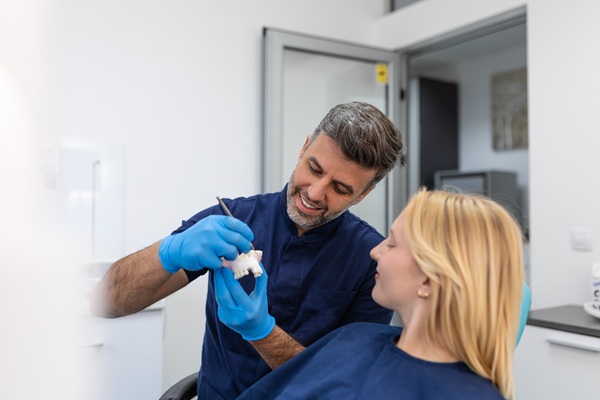A General Dentist Shares What You Should Know About Plaque and Tartar

General dentists are the best resource to refer to when it comes to plaque and tartar. They specialize in treating both, while also making an effort to educate patients on ways to prevent development to begin with. Thankfully, there are a lot of ways that general dentists can help patients avoid this from occurring. One way is to provide information that allows for a better understanding of the dangers.
Quick guide to plaque and tartar
Below is a quick overview of what a general dentist thinks is important to know about plaque and tartar. Reviewing this information may prove to be helpful to those who are not sure how harmful both can be.
The difference
Plaque is the start of a bacterial infection. It is colorless and sticks to the surface of the teeth like a film coating. General dentists state that plaque needs to be removed when it is still sticky and soft. Otherwise, it turns into tartar. Tartar is hard and sticks to the surface of the teeth, as well as the gum line, making it very difficult to remove. It also appears colorless, making it difficult to see or notice, which is why other symptoms may occur. Tartar must be addressed as it can result in tooth decay and even loss.
Dangers
Plaque can be dangerous because it can turn into tartar, which is where the real damage can take place. Once plaque does turn into tartar, the effects can be detrimental, resulting in the need for a lot of treatment. General dentists typically treat tartar build-up with restorative procedures. If decay occurs, fillings or crowns may need to be placed. In some cases, tartar can also affect the gums, which may result in the need to undergo more serious procedures, such as scaling and root planing. Scaling and root planing involves scraping the gum line clean to get rid of any buildup.
Prevention
Both plaque and tartar can easily be prevented if regular visits to the general dentist take place. Check-ups and cleaning should be done at least every six months, if not more. Additionally, a good oral hygiene routine every day is important as it will ensure that the teeth remain in good shape. Good oral hygiene includes brushing twice a day, flossing at least once, and rinsing with mouthwash a few times a week.
Find out more from a general dentist
Those who want more information on plaque and tartar can talk directly with a general dentist. It is important to have a good understanding of both in order to maintain good oral health. When suffering from plaque and tartar, it is also necessary to visit a general dentist. An evaluation can be performed to determine what type of treatment is necessary. From there, the patient will know what to expect as far as timeline and improvement. Reach out today to schedule an appointment!
Request an appointment here: https://fountaincitydental.com or call Dental Partners Fountain City at (865) 672-6525 for an appointment in our Knoxville office.
Check out what others are saying about our dental services on Yelp: General Dentist in Knoxville, TN.
Related Posts
Dental implants are the ideal solution for anyone looking to replace damaged or missing teeth. They are the top choice for patients who want the next best thing to real teeth and provide a permanent solution that can last a lifetime.Dental implants can be used to replace one or multiple missing teeth. They provide excellent…
Most everyone is familiar with the fact that dentists use dental fillings to treat cavities. What not everyone is aware of, however, is why dentists need to treat cavities with fillings or why teeth decay the way they do in the first place. We all want to keep our teeth healthy, and fillings have been…
Dentures refer to a prosthetic piece that is used to replace an entire arch of missing teeth, whether on the top or the bottom. They are one of the most common treatments used to replace teeth because of their affordability, durability, and ability to work with other prosthetic pieces, like dental implants.However, with all new…
Considering at-home teeth whitening? Many individuals experience a desire to whiten their teeth to rid them of stains. Whether it be at home or via a dental office, teeth whitening can make a significant difference when it comes to brightening one's smile.However, not everyone is in a position to undergo professional teeth whitening at a…


